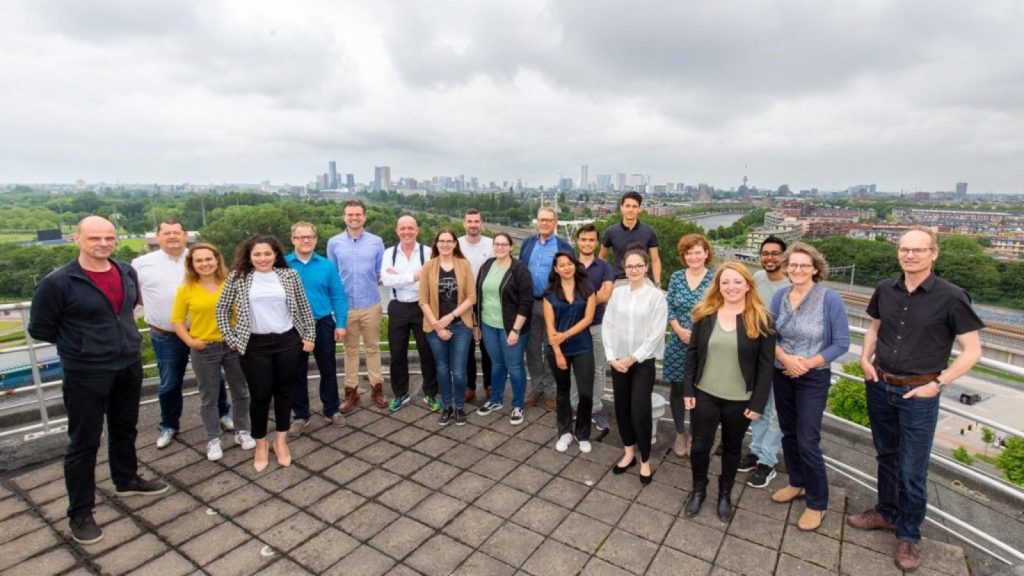Food Safety Compliance training Online
Being a QA manager at a Food company is a comprehensive, knowledge-intensive job. On the one hand, you must be constantly up to date with the latest legislation and quality standards, on the other hand, it is your task to ensure that the HACCP study is known throughout the company and that the control measures are followed up on a daily basis. Recipe changes often lead to new ingredient declarations, whereby it is also important that this information is included on the label of the relevant product when working according to the new recipe.
With our Food Safety Compliance for QA managers training we go back to the basics, the foundation to properly fulfil the complex function of QA manager, now and in the future, from a unique management perspective. Tools are offered that are essential for every Food company. How can I set up the company in such a way that all legal requirements and quality standards can be met in real-time?
Schedule Training
2 Days from 10:00 to 12:00 CET and 13:00 to 15:00 CET.
Module 1
HACCP and Legislation
On the basis of an example, the relationship between basic conditions, control measures and HACCP study regarding raw materials and processes is discussed. How do you prepare a hazard analysis? Furthermore, a total overview is given of all relevant Food legislation.
Module 2
Labelling and Specification Management
On the basis of practical examples, the labelling requirements from the legislation are further discussed. Furthermore, with the recipe module of iMIS Food, there will be legally correct labelling information is generated, and product specifications will be drawn up, taking into account, for example, customer requirements and microbiological standards.
Module 3
Quality standards and cross tables, including FSSC22000, BRC and IFS
Most Food companies are BRC, IFS or FSSC22000 certified. What are the differences and similarities between these standards? How do you set up the quality system, the documentation and compliance with it so that you demonstrably comply during the audit? How do you deal with difficult audit situations? As a company, can you cancel the audit yourself if you want to? Based on more than 1000 audits, knowledge is transferred about how you can demonstrably meet quality standards. A framework is also offered to expand the system to ISO9001, ISO14001 and the CSR performance ladder.
Module 4
Internal audits and annual QA reports
We will answer the question, 'Why are audits being held? After that, we address the quality management theory and the basic principles of auditing. With the approach offered for internal auditing, we will test practice via a Business Case and report any findings. The rest of the module is reserved for all reports expected from a Food company every year. The verification report, the management review, reports for Food Defense and Fraud and the stakeholder analysis are discussed.
Module 5
Workshop: Real-time Food Safety Compliance
Based on a case study, a long-term plan is developed for the next three years to improve food safety compliance. This starts with mapping out the current status of compliance. Therefore, all topics that have been discussed have to be applied.
The QAssurance teachers

Ir. Cees van Elst
Cornelis van Elst, Cees for intimates, has been active for more than 30 years in food safety and international speaker in the field of setting up learning organizations for Food Safety Compliance. During his studies at the Technical University Eindhoven (TUE), Cees specialized in IT and quality. While working at Unilever he saw the opportunities in the field of automated Food Safety.

BSc. Martina Stanzione
Martina, who holds a BSc in Food Technology, joined QAssurance as an intern and has continued to contribute to the team ever since. She is currently pursuing her MSc in Food Safety at Wageningen University and Research, further enhancing her expertise in the field.
Sign up for the training
Information training
2025, October 8 and 9
Costs: €1.150,- per person (more colleagues 50%)
- Training day: 10:00-12:00 CET and 13:00-15:00 CET
- Language: English
- Location: Online via Zoom
- Access to http://imistraining.imisfood.com for 2 months
- Access to the iMIS Food Helpdesk for 2 months
Register Now for Food Safety Compliance Online Training
Mail to info@qassurance.com or fill in the contact form for more information and to apply for the course.
Do you still hesitate to participate in this training?
We will be happy to discuss with you whether this training is suitable for you. It is also always possible to provide an in-company training or to adapt the program for a large group.




